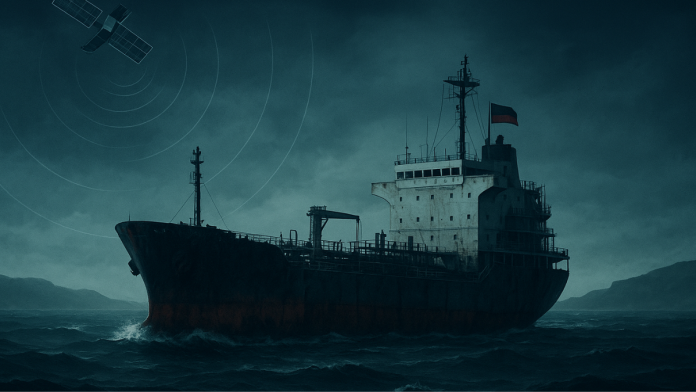More than 450 trips by Russian-linked “shadow fleet” vessels have been tracked through Ireland’s Exclusive Economic Zone (EEZ) in just the first seven months of 2025. These vessels, often operating with poor safety standards and no valid insurance, are believed to be helping Russia bypass international sanctions by transporting oil in secret. Their repeated movement through Irish waters is raising growing concerns over environmental safety, national security, and Ireland’s ability to police its critical maritime zone.
Dangerous Vessels Found Moving Through Irish Sea Zone
According to satellite data gathered by maritime intelligence company Windward, a total of 245 vessels suspected to be part of the Russian “shadow fleet” transited Ireland’s EEZ between January 1 and July 23, 2025. These vessels are believed to be involved in sanctioned oil trades that continue to support Russia’s economy despite Western restrictions.
Out of these, 72 vessels were directly named on international sanctions lists, while many others used tactics such as falsified paperwork and flag-hopping to avoid detection. Several were flying “flags of convenience” from countries like Panama, Liberia, Malta, Comoros, and the Marshall Islands, often to obscure their real ownership.
The co-founder of Windward, Ami Daniel, explained that some of these vessels turn off their location tracking systems—known as transponders—while at sea, which is both deceptive and highly risky. Others have been seen carrying out ship-to-ship oil transfers, a common tactic used to hide the origin and destination of Russian crude.
🛑 Mislabeled Chinese engines secretly fuel Russia’s war — EU struggles to enforce sanctions
Risky Moves and Hidden Threats in Irish Waters
Ireland’s EEZ stretches 370km off the west coast, covering critical international shipping lanes and undersea internet cables. Under international maritime law, Ireland is obligated to monitor activities, prevent illegal operations, and control pollution risks within this zone.
Separate data from the Irish Coast Guard, released through a Freedom of Information request, identified four Russian-flagged, sanctioned vessels that passed through the Irish EEZ this year:
- The Valentin Pikul travelled through Irish waters on March 23–24, before conducting three oil transfers with another Russian vessel in Murmansk a week later.
- The Bratsk crossed the EEZ on April 26–27, switching off its transponder off the Donegal coast.
- The Belgorod, a crude oil vessel sanctioned two months earlier, sent only intermittent location signals while passing through on May 6–7.
- The Primoyre was recorded passing through Irish waters twice between April 13 and May 2, going dark near the Clare and Donegal coastlines.
Some of these vessels have also been linked to damage of undersea cables, further increasing concerns about their presence in Irish maritime territory.
Ireland Ramps Up Monitoring, But Concerns Remain
The Irish Defence Forces say they maintain constant surveillance over the EEZ using Naval Service and Air Corps resources. However, they do not comment on specific vessel activity. All relevant information is reportedly shared with national and international authorities.
Tony Cudmore, a retired Brigadier General with the Irish Defence Forces, warned that this wave of activity may be a test of Ireland’s control over its maritime zone. He described these vessels as being similar to vehicles without insurance or safety checks, and cautioned that Ireland would bear the cost if an oil spill were to occur from one of these poorly maintained vessels.
New EU rules introduced in May 2025 require all vessels crossing through EU EEZs to show proof of valid insurance, even if they do not dock at an EU port. Countries like the UK and Germany have begun radio-checking vessels at sea, asking for documentation.
In January, German authorities seized the Panama-flagged vessel Eventin, which was carrying around €40 million worth of Russian oil to Egypt. It is believed to be part of the same shadow network.
Windward CEO Ami Daniel noted that Ireland could also take action by contacting flag states and questioning whether they are allowing dangerous or evasive operations at sea, such as fuel transfers or equipment deliveries.
Despite all sanctions, Russia’s oil exports have barely declined. According to the International Energy Agency, Russia exported 7.5 million barrels per day in 2024, just below the 7.8 million in 2021.
Professor John O’Brennan of Maynooth University said that poor enforcement by some EU countries has helped Russia exploit legal gaps. He added that some Greek shipping owners have played a role by selling old vessels to Russian-linked companies rather than retiring them.


